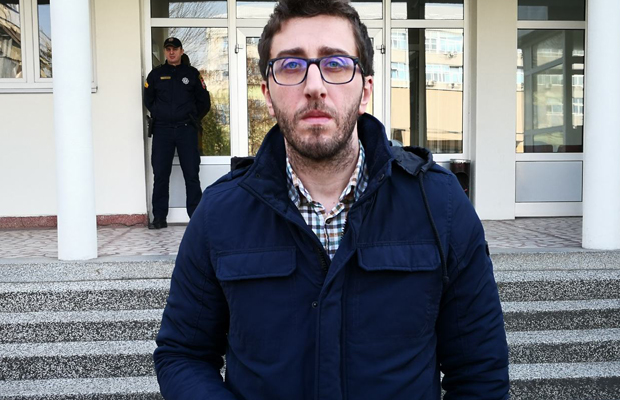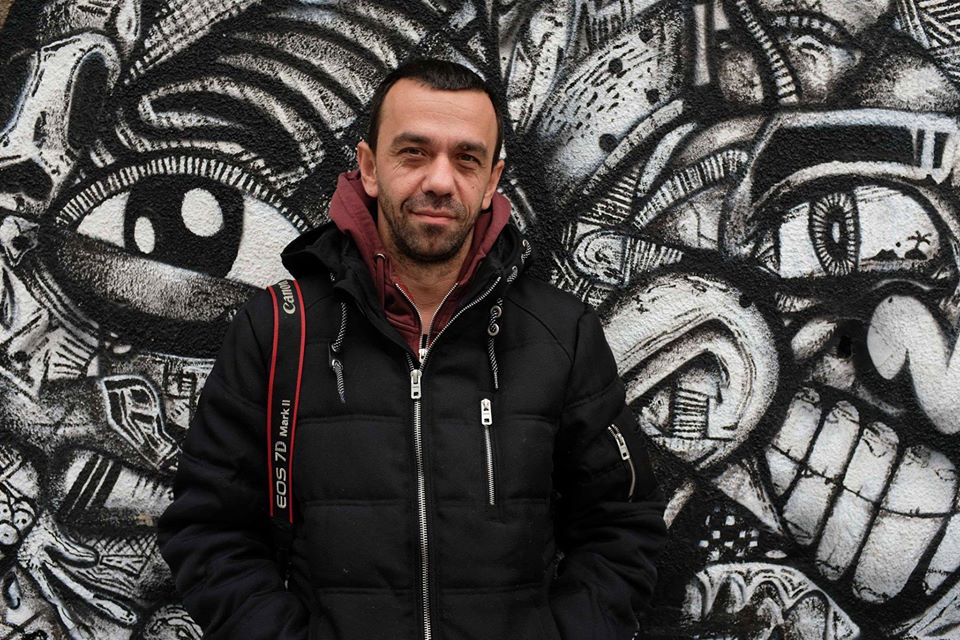PODGORICA, 18.01.2020. – An increasing number of women are in leadership positions in the Montenegrin media, according to the survey “Position of female journalists in the Montenegrin media”, conducted by Duska Pejovic for the Association of Professional Journalists of Montenegro.
According to the data provided by 14 interviewed media, 50% of women are in the position of general directors or CEOs, while 51.5% of women in the position of editors-in-chief/directors of the program. Women also lead as the chiefs of editorial staff with 60.8 percent.
The total number of journalists in the 14 observed media is 525, of which 297 (56.6%) are women, and 228 (43.4%) are men. Earlier, journalism was thought like some women’s profession, and now research confirmed that – women make up the majority of employees in the observed media.
The survey, conducted from July to December 2019, covered media with national coverage: RTCG (TV, radio, and portal), Vijesti (TV, newspaper, and portal), Pobjeda, Dnevne novine, Dan, Analitika portal, FOS Media portal, Prva TV, Nova M TV, and MINA news agency. 70 journalists were interviewed, which is 23.5 percent of the total number of those who works in the observed media.
In relation to the last and only survey on this topic conducted by NGO Woman action 2003. this is an important progress. 16 years ago, women were the most represented at the “bottom” of the pyramid of leadership in the information sphere – editorial staff was 40.5%, editors-in-chief were 21.06%, while only 15.8% women were in the position of director.
„Journalism become dominantly female profession. This already happened with education and health, and result of this is less money in that professions“, said on presentation of survey Bozena Jelusic, Professor of Literature and former Ombudsman of Vijesti.
A more favorable gender structure in decision-making places still does not imply application of gender aspect: “Although women run the media, the study found that texts and video pieces still contain stereotypes and support gender roles appropriate to patriarchy without contributing sufficiently to the establishment of equality in society”, said in research. The research also questions whether women at decision-making position can make their own decisions, with the conclusion that they do not have independence and to maintain their position they do what owners tell them.
Despite the progress recorded, 95% of journalists interviewed believe that men and women in Montenegro are not equal or that they are only partially equal. They say that de jure they have the same rights, but in practice, inequality is visible at every step, from family to work. Most stated that we are still a patriarchal society in which the male is dominant and the public sphere belong to them, while the woman is victim of prejudice and traditional norms which says that her place is in the home with an obligation to give birth and take care of the family.
During the presentation of the research, Duska Pejovic pointed out that the research is „characterized by the contradiction of the part of the answers, opinions and attitudes of the respondents as well as supporting data, which arise from the way of structuring the questions. The questions are general at first, and later deepening the topic, indicating the correlation, dependence of processes and activities, and the effect on the position, conditions and opportunities of both sexes”.
They believe they are equal, but they pointed out the discrimination
More than 90 percent of interviewed woman journalists believe that undefined working hours with housework and childcare make it difficult or partially difficult for women to do journalistic work. At the same time, there is a contradiction in the answers of the respondents, because almost 90% state that journalists are fully or partially equal in the journalism. This points to the possibility that some journalists from the observed media do not understand sufficiently the impact of the predominantly performing housework and family responsibilities on the position of women and in their profession.
As many as 80% of interviewed journalists believe that pregnancy and maternity leave partially or completely make it difficult for the positioning and advancement of women at work. Although about half of the interviewed participants answered that they had the same employment opportunities as their male colleagues, one of four respondents said that during their employment the employer asked about their marital status, children or planned pregnancy and that this could affect his decision to employ her. The statements made by the journalist are no different from those in other professions: “In one media, I was asked indirectly do I have a long relationship and whether I was planning a family. I told them I did not have and did not plan a family. I got that job. I got the impression that I would be rejected if my answer was different”. Another journalist testified: “When I told my former employer that I was pregnant, he told me to find a connection if I wanted to stay because his good will could not bring me a contract with that company. Again, at the company where I am now, the employer had an understanding and allowed maternity and pregnancy leave“.
Almost every second respondent considers that women journalists are not paid equally like their male colleagues, or that they have only partially equal earnings, and state that the primary reason is that they are male. “With the perception that male colleagues are better paid than women, journalists are put in a position to rethink the value of their work, commitment to work, and attitude toward work tasks related to journalists”, the study said.
Insufficient salaries are common for all media employees. Over 65% of interviewed female journalists believe that the job of the journalist is poorly or very poorly paid, with the explanation that salaries are less than the state average, although demanding job is difficult and requires great responsibility in relation to the amount of salary, which, as they say, is not sufficient for “survival at all”.
Female journalists complain of enormous amount of stress, various forms of pressure, undefined working hours that are often much longer than eight hours, working on weekends and holidays without permanent employment solutions, resulting in a messy life and a lot of spending in every sense.
“In my newsroom, journalists receive each EUR 350. With no intention of belittling any kind of work, I find that the same money received people who works to keep it clean, and when it comes to journalism, it’s a very responsible job. Therefore, the salary is very low, insufficient for basic living needs”, said one of the participants in the research. Another story is that the job is too stressful and that it requires some kind of accelerated retirement, and most often is financially undervalued.
Most respondents agree that journalism is a degraded profession because it is a very poorly paid job that is extremely difficult and responsible, which has lost its importance, but at the same time requires a great renunciation and sacrifice of all other family and private activities: “I consider our profession to be degraded, and of course we are degraded as journalists as well”.
The recommendations stemming from this research are that gender equality and sexual harassment training should be conducted and open public debate on clear internal rules who will guarantee women the same status they had before they went to maternity leave, when they come back to work. It was also recommended that a campaign should be launched to encourage female journalists to report irregularities and it is necessary to find methods to sanction employers who ask questions about a male or female candidate’s private life or discriminate them in some other way. Open a public debate on the need for a clear definition of eight-hour working time for journalists.
Relationship between the public, interviewees and colleagues
One of four respondents confirmed their experience about being differently treated just because she is a women. That comes of the public, interviewees, or colleagues. Two-thirds of survey participants believe that female journalists are wholly or partly more exposed to inappropriate comments than their colleagues.
“Perhaps even unknowingly, the interlocutors know to say something that will degrade or call out you based on your gender, such as “what are you doing here on the street, go home and take care of child; no wonder you haven’t been married yet when you are working all day”, said one interviewee. Another recounts her experience: “Especially male interlocutors need to try to manipulate with you and your questions. My male interlocutors often ask me for a phone number for private correspondence”. “Inappropriate calls at midnight from my interlocutors … questions “will we have a drink”, “will we go to Budva, I have a cottage there” and similarly. All under the pretext of cooperating or answering the questions asked”.
Often inappropriate comments are a form of punishment for sharp and brave female journalists. Under the kind of degradation, the female journalists stated: commenting on their physical appearance, unpleasant and profane behaviour or courtship, attitudes that a woman is not an equal interlocutor and that she knows less than a male colleague, inappropriate remarks that it is better for female journalists to cook lunch than to do journalism.
“I have had cases where interviewees insist on talking to a woman journalist, thinking that it will be easier to “scare” her or make it easier to deal with her”, one of the journalists comments is. One states: “All communication depends on the journalist and their integrity, not on the interlocutor”.
Sexual harassment is not uncommon
Every third, or fourth, a female participant in the survey has the knowledge that sexual harassment has occurred on a colleague at work. The number of female journalists who confirmed that they had experienced sexual harassment was 12 or 17.14 percent. The number of female journalists who have rounded up some form of sexual harassment in the questionnaire is 26 or 37.14 percent. Pejovic states that it is possible for some respondents to perceive sexual behavior as normal, normal, socially acceptable communication. That they experienced non-verbal communication – staring, standing too close, various indecent signs … confirmed by 26 percent of respondents, 22 percent experienced calling inappropriate names, throwing up and making inappropriate comments of a sexual nature, and unwanted calls and inappropriate attention, for example persistently calling for a meeting despite the clear answer that they were not interested, 16 percent of respondents.
“I know of a case where a colleague was harassed by a colleague who is not a journalist but is an employee of the media house where I work. Even an application was written. It all happened on a business trip. On his way back, her colleague veered off the road and tried in a very inappropriate way to flirt with her”, testifies one respondent.
“Calling inappropriate names was common – baby, doll, honey … especially when I was younger. Those people who spoke to me like that though it was a compliment. There were also physical touches, mostly hugging and kissing, but it is also part of the story that in our society it is completely normal that my colleague or director shows me a kind of affection in that way, that he shows me how sweet, nice and lovable I am. I was trying to rebel, but I come across the condemnation of all. And those were even harder moments”.
Reporting on the Status and Rights of Women – marginalized in this segment as well
90% of female journalists are not satisfied with the way of reporting about women or are partially satisfied. The same percentage, 90 percent of female journalists claim to apply the gender aspect in their work or partially apply it.
The views of journalists on this issue are that these topics are marginalized because they are considered not serious enough, there is a practise od generally speaking about the position of women without deeper processing and analysis of specific problems, the stories were mostly written when a case of violence already occurs, reporting is sensationalistic, journalists and editors are not gender-sensitive.
“Only 7% of the journalists interviewed replied that they did not apply the gender aspect in reporting, and they mostly stated that they were following areas that did not treat gender equality. Many respondents do not sufficiently recognize that this principle applies in all areas and activities of the society and that inequality exists in all spheres. In any case, it emerges from the views and opinions that there is an openness and a suitable ground for sensitization and education that will lead to the gender equality in the texts and TV stories”, the study said.
82 percent of respondents were interested in educating themselves on gender-sensitive reporting, and as many as 55 percents of the interviewed journalists had never received training. Through their work female journalists want to influence and change the consciousness in order to improve the position of women in society, and therefore in journalism.
 This article has been produced with the support of the European Endowment for Democracy (EED). Its contents do not necessarily reflect the official opinion of EED. Responsibility for the information and views expressed in this publication lies entirely with the author.
This article has been produced with the support of the European Endowment for Democracy (EED). Its contents do not necessarily reflect the official opinion of EED. Responsibility for the information and views expressed in this publication lies entirely with the author.


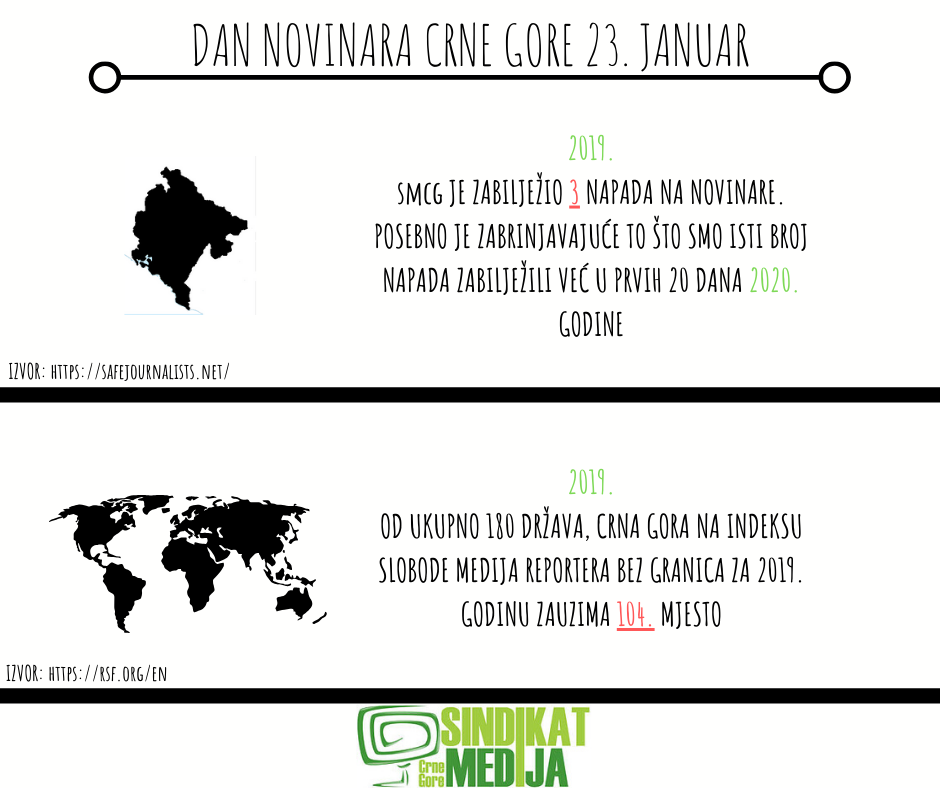
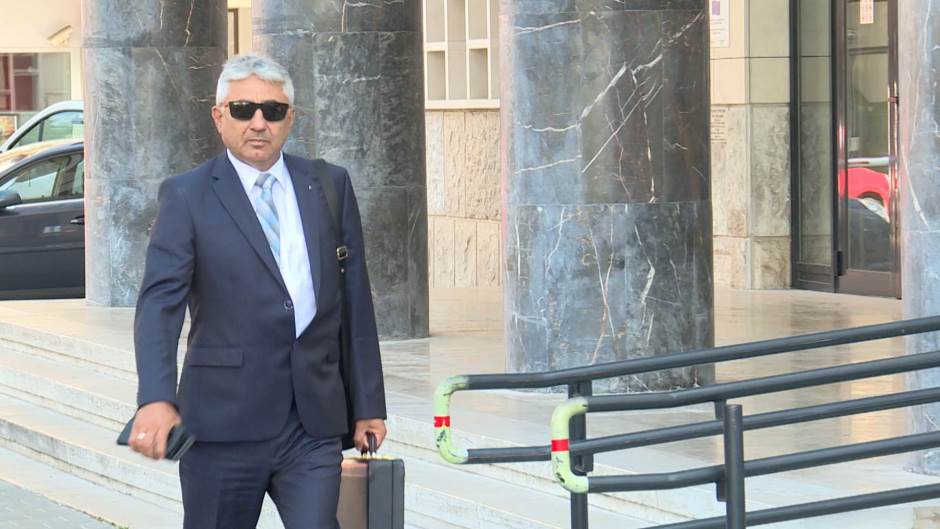
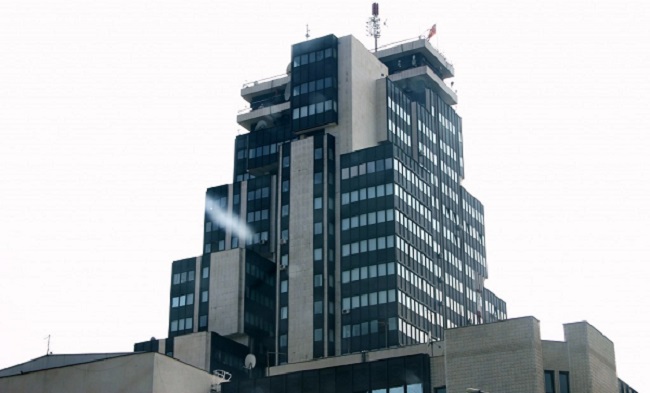
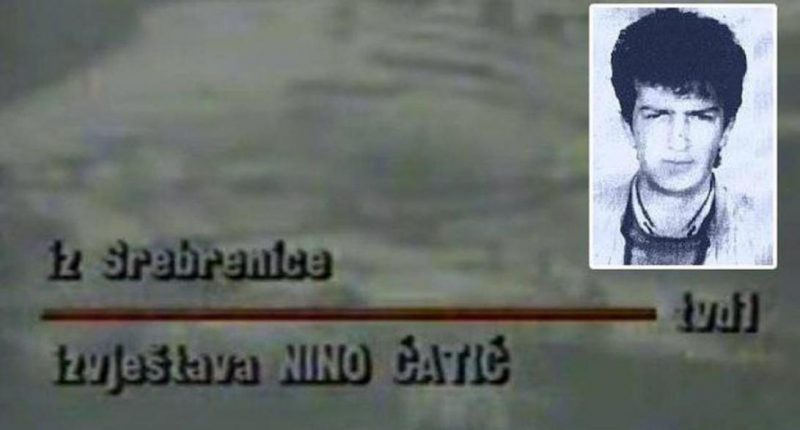
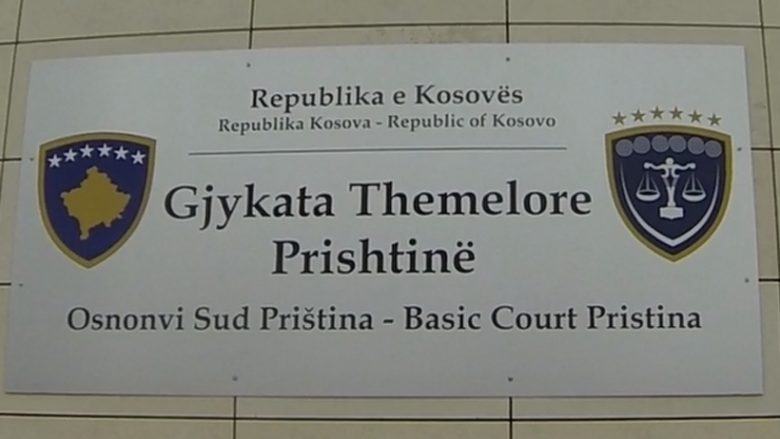
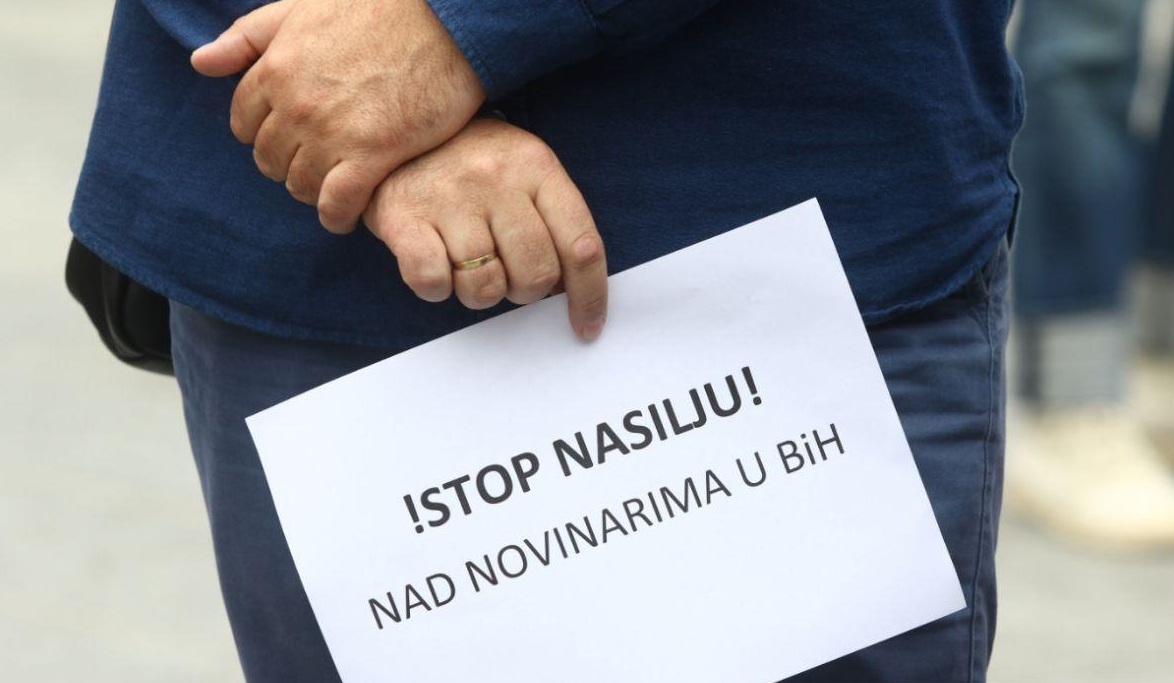

 This article has been produced with the support of the European Endowment for Democracy (EED). Its contents do not necessarily reflect the official opinion of EED. Responsibility for the information and views expressed in this publication lies entirely with the author.
This article has been produced with the support of the European Endowment for Democracy (EED). Its contents do not necessarily reflect the official opinion of EED. Responsibility for the information and views expressed in this publication lies entirely with the author.